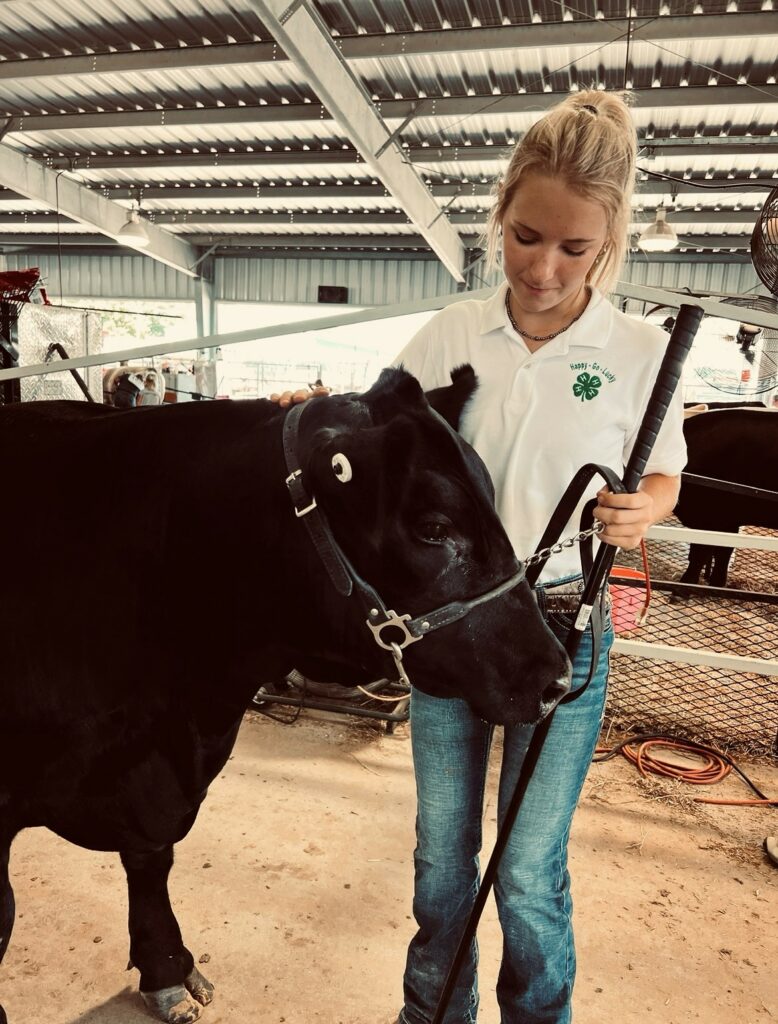Breaking ground: Women cultivating success and shaping the future of agriculture
By Adisen Fischer

Junior Adisen Fischer rewards her heifer Martha Mae after winning the Senior Showman Grand Champion. “I was so happy for the both of us; after working so hard, it finally paid off,” Fischer said.
Thomas Jefferson once said, “Agriculture is our wisest pursuit, because it will in the end contribute most to real wealth, good morals and happiness.” March is national agriculture month, however, for a small-town we don’t just celebrate agriculture for one month; we do it year-round. In Falls City it is common knowledge that cattle sales are on Thursdays down at the sale barn and the main street will be filled with trailers. For many, they would find this to be a rather strange sight. Most people in our small town are related to some form of a farm production, whether this be crop or livestock farming, seeing that is common. Families work together to run their farms, this means not only are the sons involved, but the daughters are, too.
Being a woman in agriculture can be rather challenging due to it being a primarily male-dominated industry. Some challenges are inequality in labor conditions and access to work opportunities, limited access to productive inputs, and insufficient credit. However, that is changing every day. According to the 2017 Census of Agriculture, women accounted for 36% of the country’s 3.4 million producers. Fifty-six percent had a female producer, while 9% of farms were run entirely by women. These female-operated farms account for 38% of U.S. agriculture sales and 43% of U.S. farmland.
I have participated in 4-H since the age of five and have loved not only expanding my knowledge on agriculture, but also learning to come out of my shell and making new friends along the way. Being a part of 4-H doesn’t mean just working with and showing animals, but also public speaking skills, musical skills, home economics, sewing, photography, shooting sports and working with food. I have always had a love for agriculture and plan to continue working in agriculture when I graduate next year.
On the farm chores look a little bit different than regular chores. Every morning, we wake up and make sure everything has fresh water. We start with our chickens, then our goats, the cows and finally our horses. We first make milk for our new kids, baby goats, and then milk for our bottle calves. Finally, we hay and grain everything and make sure all animals are set for the day before leaving for school. When we come home in the evenings, we make sure all waters are full, and we restart all of the chores and collect the eggs.
Though my 4-H career and life on the farm I have gained many different life skills that I believe play a major role in my everyday life. Being on the farm and working with my animals has not only taught me hard work, but I’ve also learned responsibility and dedication. Having to waking up each morning to take care of the animals before you do anything else can be challenging some days, but in the end, it is always worth it. I hope to keep working with and using these skills in my life after high school. It is important to me that I continue my career pathway in agriculture and later teach my own family these skills.
